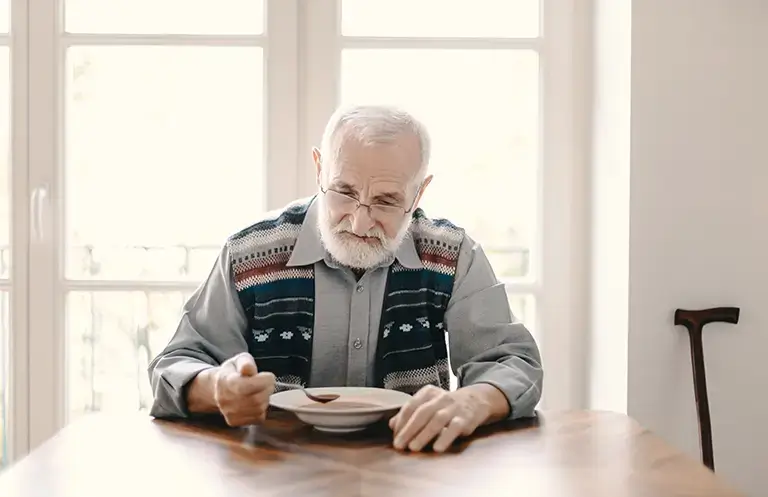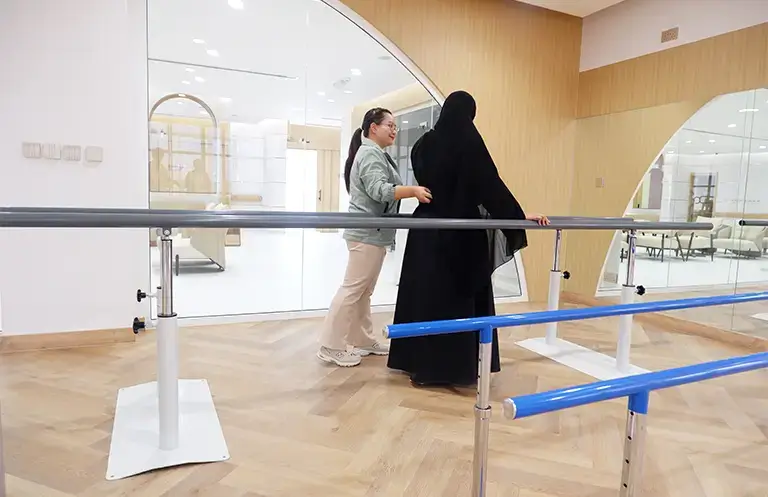Neurological Rehabilitation

Neurological Rehabilitation (Neuro Rehab)
The nervous system is divided into the central nervous system and the peripheral nervous system. The central nervous system consists of the brain and spinal cord, which are responsible for sending commands to various parts of the body to perform activities, such as communication and walking. These commands are transmitted through the peripheral nerves, which make up the peripheral nervous system. Therefore, our body relies on the cooperation of both systems to control various activities necessary for daily living.
Most problems encountered in patients within this group highlight the "Golden Period," which is the first 3-6 months after an injury. During this time, the brain and spinal cord can recover rapidly. Therefore, implementing a physiotherapy plan immediately increases the chances of the patient returning to a near-normal state.
When the central or peripheral nervous system is impaired, whether in terms of issuing commands or communicating these commands, the main causes are typically injury or the death of nerve cells. In physiotherapy, we can identify key issues as follows
o1. Muscle Paralysis
02. Muscle Spasti
03. Dysarthria
Diseases that can be commonly found include:
- Stroke
- Brain Trauma
- Spinal Cord Injury - (SCI)
- Parkinson’s Disease
- Multiple Sclerosis - (MS)
- Encephalopathy
- Duchenne Muscular Dystrophy - (DMD)
- Guillain-Barré Syndrome - (GBS)
- Myasthenia Gravis - (MG)
- Bell's Palsy


Physical Therapy Assessment
The primary goal of physical therapy in neurological patients is to conduct an assessment and plan that precisely addresses the patient's specific problems (Individual Treatment Plan). This is a key factor in enhancing the patient’s abilities.
Physical therapy management (Assessment) using advanced technology and expert physical therapists helps patients learn and develop skills more effectively, allowing them to function as normally as possible.
Management of Physical and Occupational Therapy in Neurological Patients
Many patients face challenges when the nervous system is injured by disease, which often leads to immediate and direct impacts on their ability to perform daily activities. Common issues and management approaches include:
Swallow Problem
Training for mouth muscle control and swallowing (Oro-motor stimulation and swallowing training)
Speech and Communication Problem (Dysarthria)
Speech therapy
Poor Hand Function
Hand function training to enhance hand muscle use
Cognition and Perception Problem
Cognition and perception training for stimulation
Mental and Memory Problem
Mental and memory stimulation exercises
Poor Muscle Control and Weakness
Muscle exercise and functional training
Mobility and Ambulation Problem
Training for walking and body movement control (Mobility and Ambulation Training)
Reduced Ability in Activities of Daily Living (ADL)
Occupational therapy to help patients regain independence in daily life activities
Our Team and Specialists
Doctors review and assess the severity of the condition and play a key role in designing rehabilitation plans, providing guidance for patients, physiotherapists, and occupational therapists.
Occupational Therapists
for neurological patients focus on assessing and analyzing to create treatment plans that enable patients to regain independence in daily activities, such as speech therapy, swallowing training, writing or reading exercises, and daily self-care tasks like bathing and dressing.
Physiotherapists
for neurological patients focus on assessment and analysis to develop rehabilitation plans aimed at improving mobility. Their goal is to help patients regain the ability to sit, stand, or walk and reintegrate into society and their external environment.
The multidisciplinary team is a crucial component, ensuring that patients and their families receive comprehensive care and continuous follow-up for neurological issues. The ultimate goal is for patients to return to a near-normal daily life.
